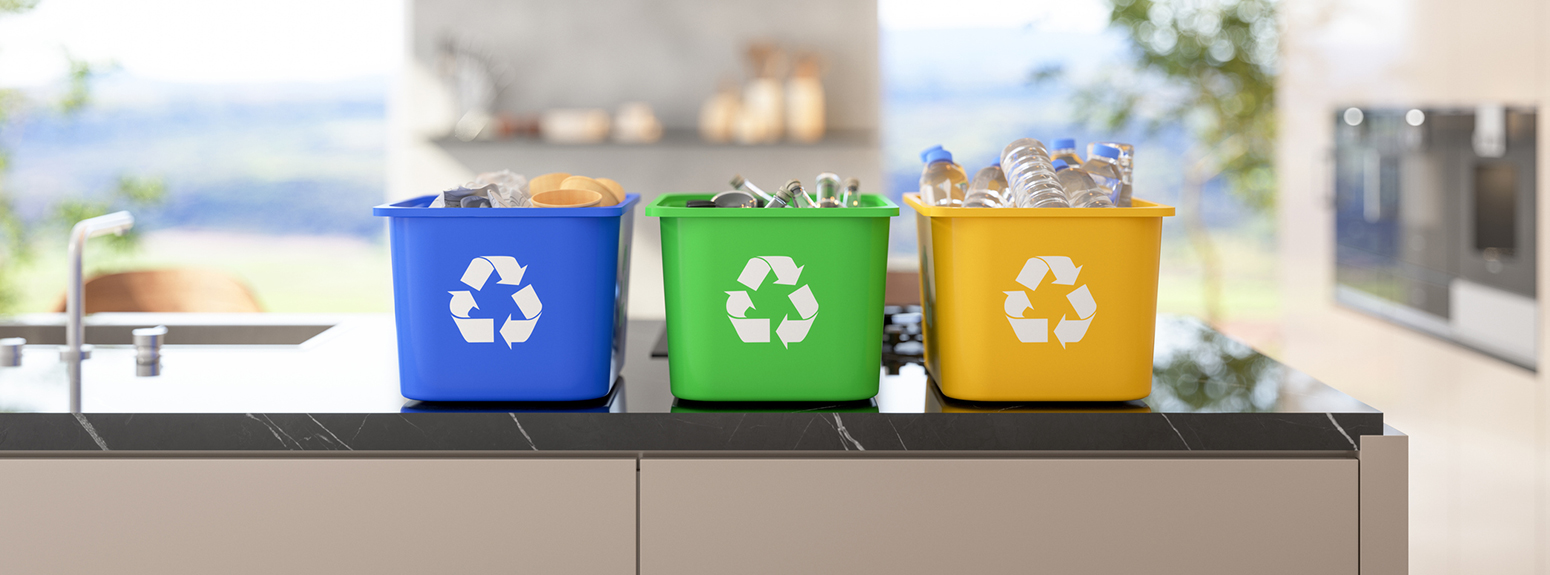The importance of the circular economy for efficient and sustainable European waste management
Circular waste management, also promoted with the European Week for Waste Reduction, is now essential. In this context, consistently with the Intesa Sanpaolo Group's commitment to the transition towards the circular economy, it fits the Innovation Coffee scheduled for November 21st dedicated to the design for the ecological transition.
The ecological transition to complete necessarily requires a paradigm shift from the linear economy, based on unbridled consumerism and "disposable" product logics, to the circular economy. A model that, according to the definition of the European Commission, "aims to maintain for an optimal time the value of materials and energy used in products reducing waste and resource use", as well as creating "economic opportunities and competitive advantages on a sustainable basis".
With Europe currently generating 2.2 billion tonnes of waste per year (27% is urban waste), expected to grow by an estimated 75% globally by 2050, a circular approach to waste management is essential. Thanks to reuse and recycling, the circular economy triggers a virtuous circle in which products retain value longer, promotes sustainable innovation, puts back into circulation waste and as raw or secondary materials, and promotes a development model in which the creation of values of businesses, communities and territories is detached from the exploitation of depleted natural resources.


The principles of circular waste management in Europe: the Waste Hierarchy
With the aim of becoming a world leader in the transition to the circular economy in line with the European Green Deal, the EU has launched and adopted several measures to improve waste management, establishing with Directive 2008/98/EC a “Waste Hierarchy” based on sustainability and circularity of viable options.
The preferable solution is to prevent waste production. In this sense it is necessary to promote the conscious use of resources, encourage sustainable eco-design (also for packaging) and replace harmful raw materials for man and the environment thanks to technological innovation, and reduce the environmental impacts of product lifecycles by making them repairable, upgradeable and reusable.
The second option is the reuse or reuse of products designed in this perspective by design, therefore providing for the repair of damaged components that prolong their "end of life".
If a product cannot be reused, recycling and recovery of waste through separate collection facilitate recycling by turning it into a valuable resource. The "hierarchy" then contemplates the use of waste-to-energy plants for waste that can be a source of energy supply.
Finally, if the other options are not viable, the last solution is landfill, which, however, leads to a waste of resources and damages public health and the environment.
European Week for Waste Reduction and Innovation Coffee "Design for the ecological transition: new perspectives for sustainable packaging"
Aware of how, in addition to changing the economic paradigm, correct waste management involves multiple actors, the European Commission under the LIFE+ programme has established the European Week for Waste Reduction (EWWR) - that in 2023 takes place from 18 to 26 November. The initiative promotes proper management of waste and raising the awareness of civil society players so that they become more aware of the excessive amount of waste generated and the need to reduce it. An environmental communication campaign that includes concrete actions and their sharing regarding waste management, following the "3R" of the EU hierarchy for their circular management: reduction, reuse and recycling.
In the context of the EWWR) 2023, on November 21 fits the Innovation Coffee (cycle of virtual meetings organized by Intesa Sanpaolo Innovation Center to spread the culture of innovation) entitled "Design for the ecological transition: new perspectives for sustainable packaging". An opportunity to deepen the role of design in addressing complex challenges such as waste reduction upstream, starring Sara Fortunati - director of the Turin Design Circle - and Chiara Remondino- Researcher at the Department of Architecture and Design of the Polytechnic of Turin that focuses her activity on innovative ecopackaging


Waste and critical raw materials in European waste management
Another aspect of crucial importance in circular waste management concerns critical raw materials for industry. In 2023, the European Commission has registered 34 of them including Boron, Lithium, Magnesium, Scandium, Tungsten, Vanadium and Rare Earths (light and heavy, crucial for the development of green technologies). Matters of strategic economic importance, fundamental for multiple industrial ecosystems (especially those with high energy density), as well as necessary for the development of key technologies for energy, economic and industrial policies in addition to defense.
Currently China is the main supplier of critical raw materials to Europe (56%), with annexes risks to supplies in the event of import interruption in an increasingly uncertain global context. Valuing waste, however, Italy will be able to satisfy a percentage of between 20 and 32% of its strategic raw materials needs as early as 2030 anticipating the objectives of the European Union by 10 years.
Moreover, partly because of the volumes of low-carbon technologies that will come to an end of life, the stock of recyclable products is expected to increase 13-fold in 2050, resulting in smaller investments that will generate economic benefits given the reduction in imports, to which is added the reduction of CO2 emissions compared to mining processes.
Intesa Sanpaolo Group’s commitment to the circular transformation of the economy
Intesa Sanpaolo Group, precursor in the diffusion of the values and principles of the circular economy in Italy and beyond, in 2016 was the first financial institution in the world to become a Strategic Partner of the Ellen MacArthur Foundation: the most important and authoritative think-tank engaged in promoting the acceleration of the systemic transition towards the circular economy.
Intesa Sanpaolo's commitment to promote and facilitate the transition to the circular economy takes shape with the provision of the Circular Economy Plafond that financially support innovative and impactful projects, which in the 2022-2025 Industrial Plan is 8 billion euros to which 6 billion are added from the previous three-year Industrial Plan.
Furthermore, Intesa Sanpaolo Innovation Center is the center of expertise on circular issues for the Group, validating Plafond funding and promoting the adoption of circular transformative practices through the CE Lab, an initiative born in collaboration with Cariplo Factory. The CE Lab offers services of circular connection, open innovation and education, aimed at promote the circular evolution of businesses
